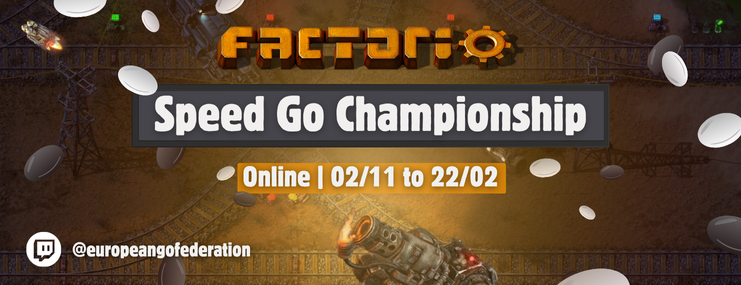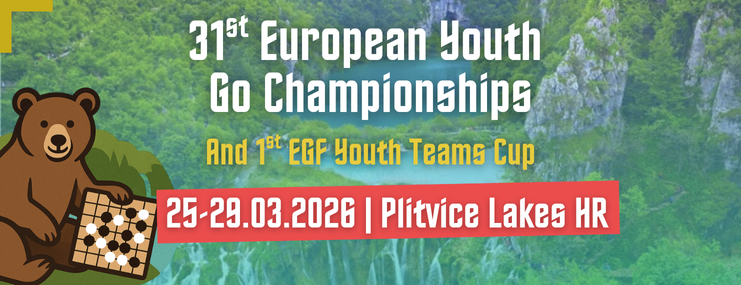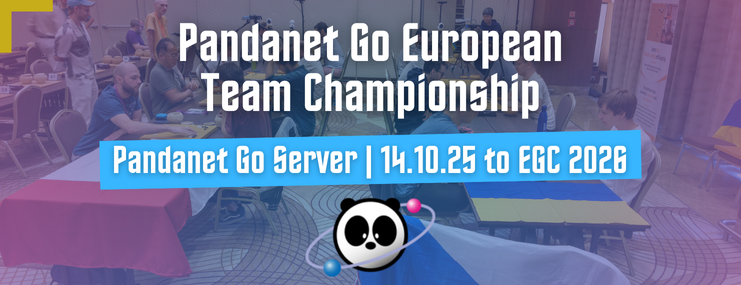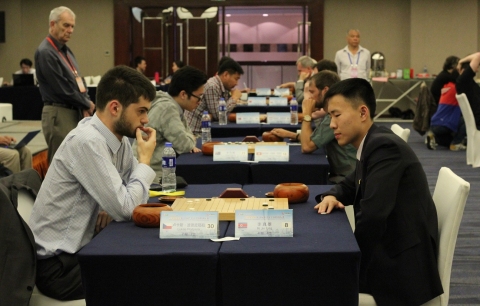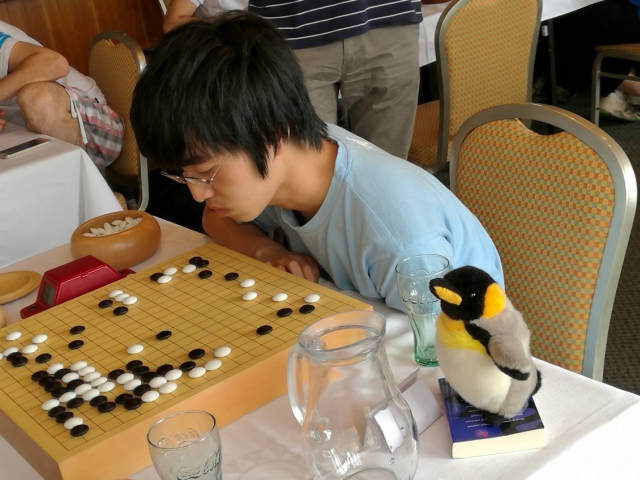This year, although China won the WAGC, subtitled China Asset Management Cup, with a 8:0 result, without a single loss, the competition for the runner-up places was extremely close. No one scored 7 victories, so the SOS tiebreaker played a big role in the distribution of the remaining places.
The 38th WAGC adopted a purely Swiss tournament system. With the exception of four seeded players, i.e. the fours best countries at last WAGC (China, Korea, C. Taipei, Ukraine), who were spread apart lest they meet too early in the tournament, the pairings were perfectly randomised. Every player except the above mentioned four drew a number corresponding to the number in the table, and were subsequently paired according to the number.
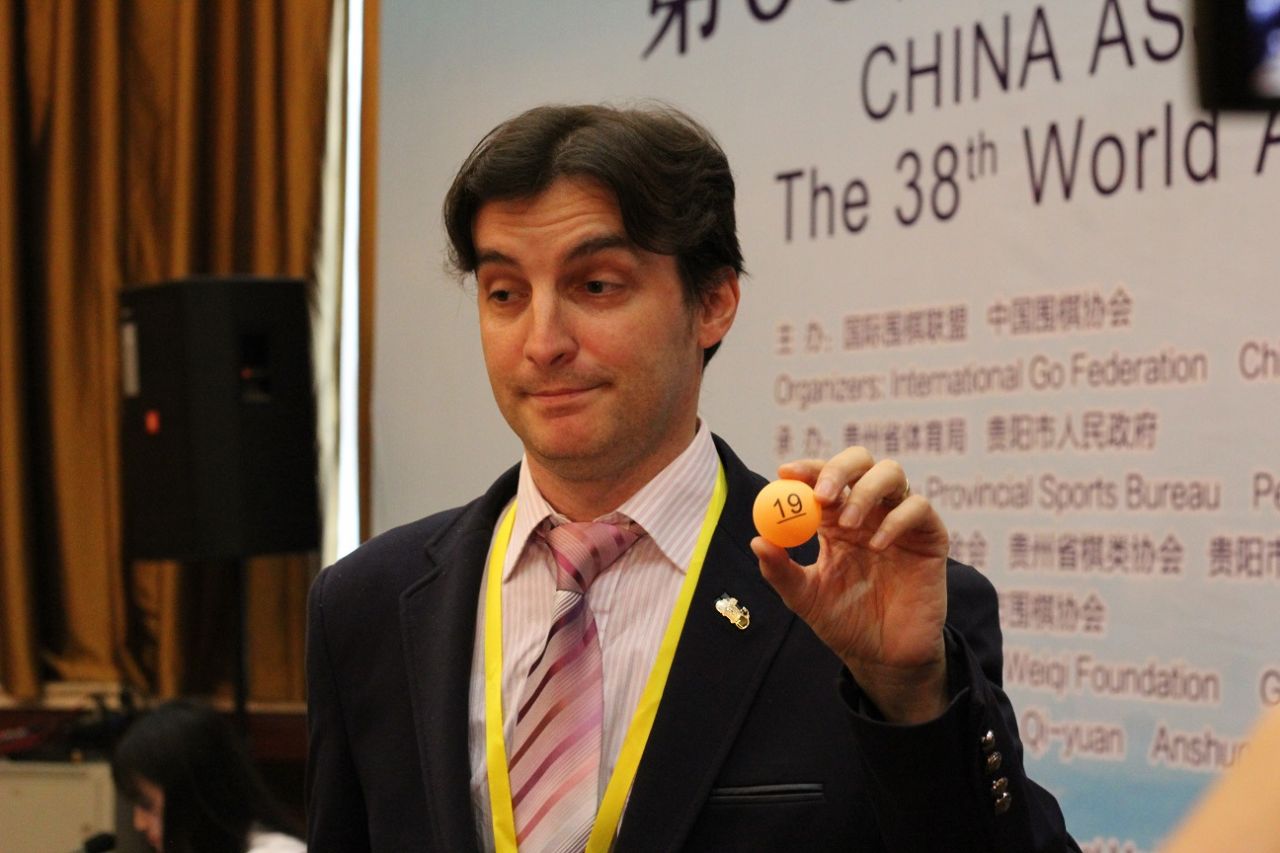
This implies that luck was also involved throughout the tournament. While the first round had a difficult showdown already between Korea and Japan, others (like me) could advance without problems, at least for a few rounds.
Among the European participants, Lukas Podpera from Czech Republic left the greatest impression by defeating C. Taipei in the second round (and therefore achieving his personal goal early on in the tournament). However, Lukas ran out of steam after being defeated by North Korea by 0,5 in the fourth round and eventually ended up in 10th place with a score of 5:3.
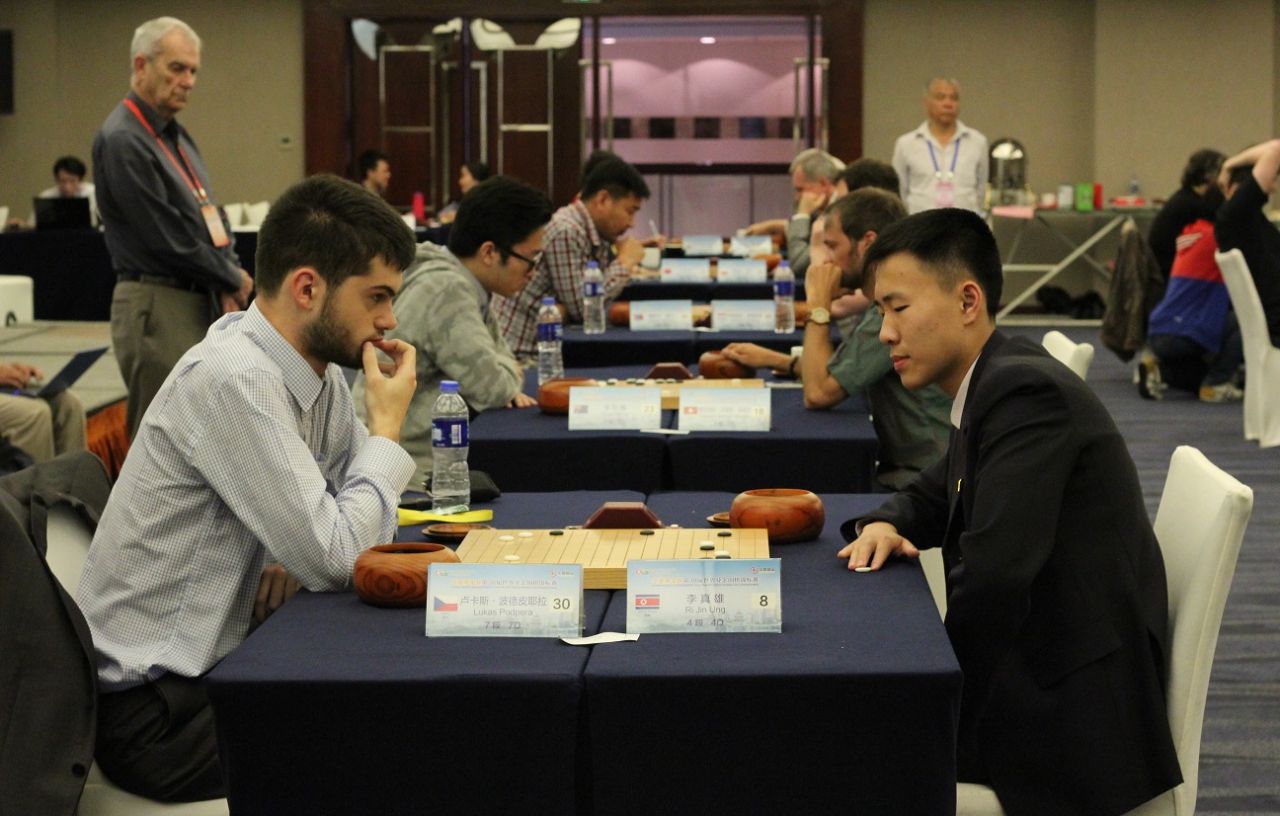
Later on, in round 6, Dmitry Surin was the only European left with only one defeat and the most promising to get a good placement, but ended up on the 9th place after losing the two remaining games, to the eventual champion Bai Baoxing and Cornel Burzo from Romania respectively. The latter was the only European who scored 6:2 and ended up on the 6th place.
| Place | Name | Country | Wins | SOS |
| 1 | Bai Baoxiang | China | 8 | 84 |
| 2 | Lee Sangbin | South Korea | 6 | 86 |
| 3 | Lai Yu Cheng | C. Taipei | 6 | 80 |
| 4 | Daniel Ko | USA | 6 | 80 |
| 5 | Shusaku Sakamoto | Japan | 6 | 80 |
| 6 | Jin Ung Ri | North Korea | 6 | 78 |
| 7 | Cornel Burzo | Romania | 6 | 74 |
| 8 | Chan Nai San | Hong Kong | 6 | 68 |
| 9 | Dmitry Surin | Russia | 5 | 84 |
| 10 | Lukas Podpera | Czech Republic | 5 | 82 |
(The tie breaker used to decide the order for the 3rd to 5th places is SOS without taking into account the first round/first and second rounds etc.)
Besides the tournament, several topics were addressed during the WAGC:
-) The decisions of the IGF board regarding the next WAGCs were accepted unanimously by the Annual Meeting of the representatives. Since the Olympic Games 2020 will be held in Tokyo, Japan claims the next two WAGCs under their next two-year IGF presidency, in order to attract publicity for go before the Olympic Games. Thus, WAGC 2018 will be held (from 2 to 9 May) at Nihon Ki-in in Tokyo, and WAGC 2019 in Shimane.
The Russian proposal for a WAGC in Vladivostok will be realised in 2020, with full support from and under the IGF presidency of Korea.
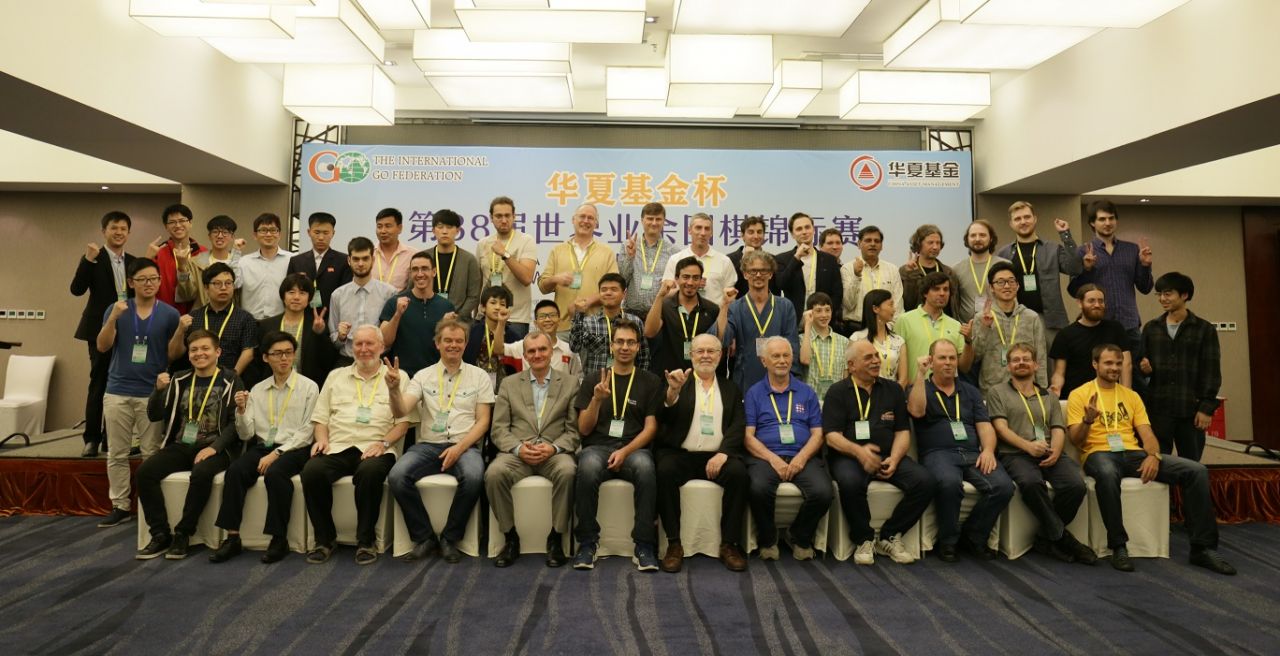
-) The IGF has been working on international ruling and scoring systems, as well as arranging better go education and publicity in the form of a pamphlet.
-) Yike Go Server, apparently the most popular Chinese go app at the moment, announced plans for creating a desktop version and English versions. You can find all broadcasted and recorded games from WAGC on Yike, each game having tens of thousands of views from the Chinese audience.
-) It was commented that humans shall stop competing with bots and regard them as friendly and useful tools that are narrowing the gap between the skills of the East and of the West. (AlphaGo had just swept away top Chinese pros in various playing settings, only losing to itself in an AlphaGo+human rengo match.) In fact, an AI-only world championship was announced to take place in August, at the first Chinese Go Congress (also modelled after the EGC). Confirmation and details to follow.
Of course, even in the all-human WAGC, hints of AlphaGo could be found in many games. Most prominently, the South Korean representative Lee Sangbin invaded at 3-3 at every opportunity. For example:
(Find full records on Yike.)
-) Special mentions at the closing ceremony for:
-the youngest participant, 12 year-old Davide Bernardis from Italy.
-the oldest participant, 72 year-old Zoran Mutabzija from Croatia.
-Frank Janssen from the Netherlands for his cameo in Hikaru no Go.
-the North Korean representative Jin Ung Ri for his outstanding performance in spite of unfavourable training environment. Jin lost in the last round to South Korea by a mere half point, missing second place by a narrow margin. Jin also had the closest game with the Chinese champion, losing by only 1,5.
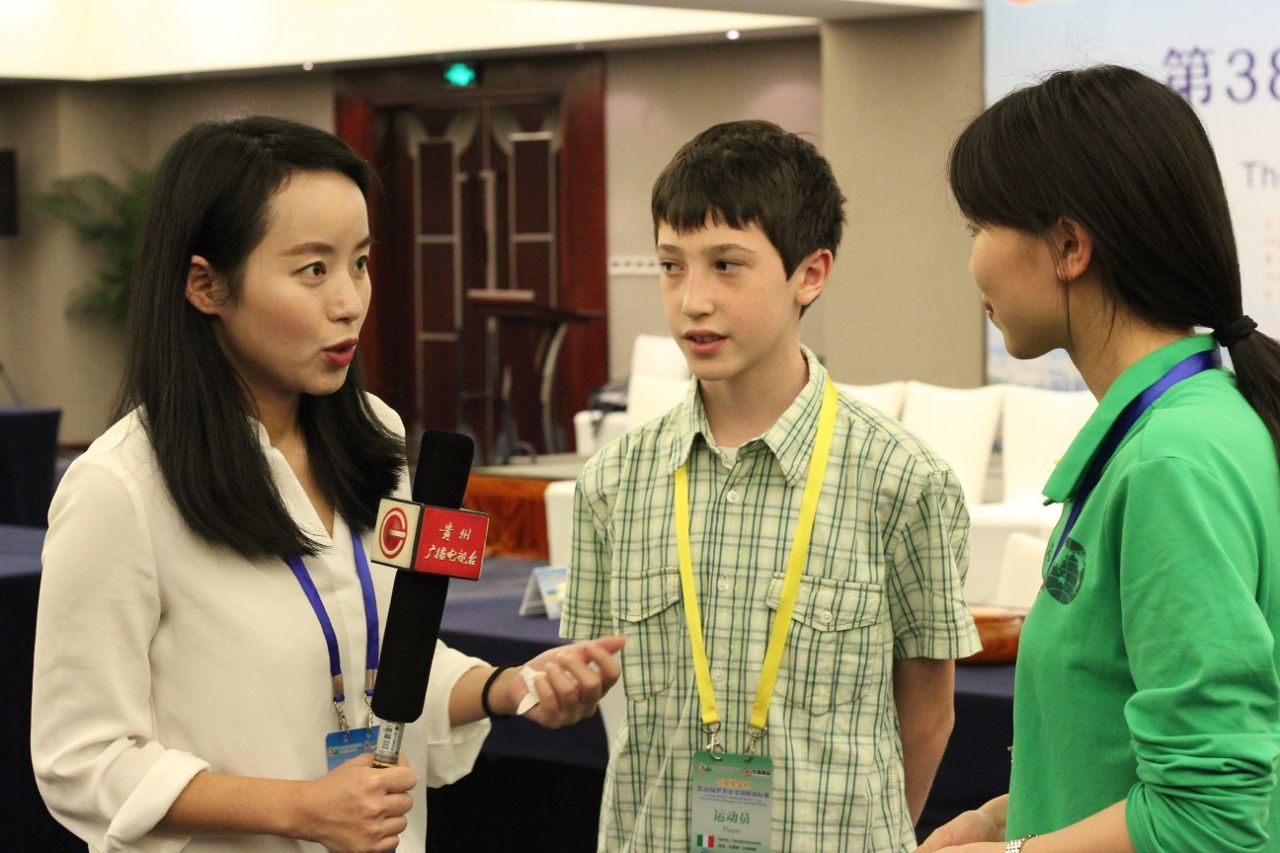
Other observations:
-Japan's representative Shusaku Sakamoto turned out to be not related to the Shusaku as their names are written in different characters.
-Ricardo Alberto Garcia de la Banda Garcia from Spain had the longest (yet surprisingly pronouncible) name, whereas Xi Yue from Singapore had the shortest.






